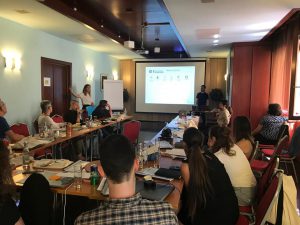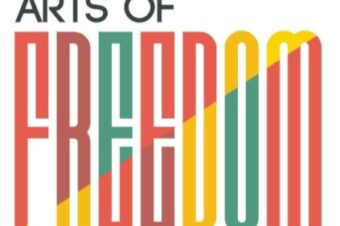 In society the mainstream is to think that the reintegration of offenders only depends on the successful completion of the programmes started in prison or with probation services. Or in other words that successful reintegration only depends on Prison and Probation Services. It seems society delegates its responsibility on the system and only interacts with it when they feel their safety is endangered again. Society emphasis is on reaction and not on proactivity.
In society the mainstream is to think that the reintegration of offenders only depends on the successful completion of the programmes started in prison or with probation services. Or in other words that successful reintegration only depends on Prison and Probation Services. It seems society delegates its responsibility on the system and only interacts with it when they feel their safety is endangered again. Society emphasis is on reaction and not on proactivity.
In MOBi initiative we believe this can change as society is challenged to become a more active and reliable partner inpreventing recidivism – thus (ex)offenders reintegration.
Aproximar in cooperation with Reintegration and Prison Services (DGRSP) in Portugal and 6 other organizations  from 4 more countries (Romania, France, Italy and Germany) are implementing a project called MOBi – Mobilizing Society Towards (ex) Offenders Reintegration from 2017 until 2020 (2017-1-RO01-KA204-037360). MOBi project is co-financed by the European Commission under the “ERASMUS+ K2” and was conceived to respond to an evolving need, namely the social inclusion of (ex) offenders.
from 4 more countries (Romania, France, Italy and Germany) are implementing a project called MOBi – Mobilizing Society Towards (ex) Offenders Reintegration from 2017 until 2020 (2017-1-RO01-KA204-037360). MOBi project is co-financed by the European Commission under the “ERASMUS+ K2” and was conceived to respond to an evolving need, namely the social inclusion of (ex) offenders.
We’re proposing a looking glass:
- How we, civil society, are contributing to be the turning point in each (ex) offender life?
- What are society’s perception on (ex)offenders and the CJS?
- And about its role on reintegration?
 The methodology of the project follows a waterfall implementation strategy, in which the first activities will supply the necessary inputs to develop the following ones.
The methodology of the project follows a waterfall implementation strategy, in which the first activities will supply the necessary inputs to develop the following ones.
The project stands to develop a training course on community awareness of (ex) offenders’ rehabilitation and reintegration, breaking cycles of reoffending and social exclusion; and, to help EU to involve a large number of actors on this social problem, making all of us playing our full part.
So far MOBi has collected more than 400 questionnaires from general public and 400 questionnaires from the inmates, piloting this looking glass to understand the EU contemporary punishment and reintegration picture in terms of society’s’ perception, participation, offenders labelling, return to work or to community, building a quick assessment tool to measure society “culture” towards punishment and reintegration. It is not yet 100% scientific but definitely is something done for the first time.
The main aim of MOBi is creating new, innovative and multidisciplinary approaches to respond to (ex)offenders’ reintegration process. The main priority is on developing a community engagement methodology. A resource to support CJS organisations and practitioners, and closest stakeholders’ efforts on reinforcing existent community (society) based approaches.
Since we desire to make the achievements sustainable, we expect to design and test one transnational training programme, to be executed by key-organisations, aiming civil society in order to ensure that all citizens have access to knowledge on CJS rehabilitation model and re-thinking on their individual role in the reintegration process
From the experience the focus will be to deliver a Handbook, to support different enterprises/organisations from Public, Private and Third Sector developing their social responsibility and participation on CJS and offenders’ reintegration.
At the end MOBi aims to ensure that this package (assessment + methodology + training) can be replicated in any EU country with the intended purpose of up-scaling to public policy recommendation, by delivering a Handbook for community awareness of (ex)offenders’ rehabilitation and reintegration processes.
More details about the MOBi Project and the main results of the Intellectual Outputs, please visit our website.
by Rita Lourenço
– Head of Unit for Social Innovation, email
Partner contact in Portugal: Aproximar, Cooperativa de Solidariedade Social, email
UPDATE 31 MARCH 2019
MOBi just released some infographs with useful and important information on:
a. What prisoners think about society’s perceptions 1
b. What prisoners think about society’s perceptions 2


